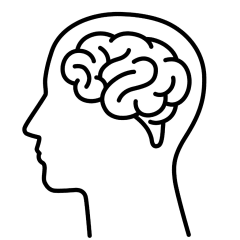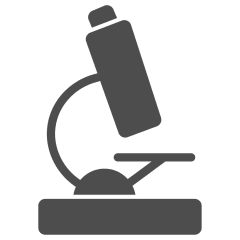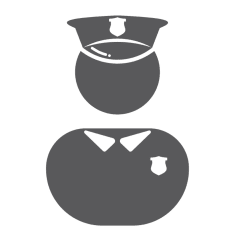10 Best Neuroscience Careers
Are you analytical, curious, and detail-oriented? Are you fascinated by the inner workings of the human brain?
If so, a bachelor's in neuroscience might be the right choice for you. Competitive and interdisciplinary, this major brings together insights from psychology, biology, physiology, computer science, and more exploring all aspects of the human nervous system.
Students in the program gain valuable knowledge about neurotransmitters and brain function, an awareness of how nervous system trauma or disease affects daily behavior, and an understanding of essential research methods and statistical analyses. They learn to develop and test hypotheses, perform critical analyses, and communicate complex ideas clearly and succinctly. Finally, neuroscience majors can often find employment in a laboratory during their studies, providing them with hands-on research experience that will serve them well in a wide range of work settings.
This unique skill set—together with their knowledge of how people think, feel, and behave–prepares neuroscience majors well for success in many careers. Let's take a look at a few of the most common ones, and whether they're a fit for you.
This article will be covering the following careers:
| Career | Avg Salary | Satisfaction | Your Match |
|---|---|---|---|
| Neuropsychologist | $149k | 3.6/5 | |
| Advertising Sales Agent | $38k | 2.7/5 | |
| Genetic Counselor | $88k | ?? | |
| Medical Laboratory Technician | $45k | 2.9/5 | |
| Industrial Organizational Psychologist | $218k | 3.8/5 | |
| Substance Abuse Social Worker | $53k | 2.8/5 | |
| Health Services Manager | $61k | 3.0/5 | |
| Correctional Officer | $41k | 2.4/5 | |
| Biotechnician | $41k | 3.2/5 | |
| Journalist | $55k | 3.5/5 |
Are these careers suited to you? Our comprehensive career test measures your personality traits and interests and matches you to over 800 careers.
1. Neuropsychologist
Neuropsychologists work closely with doctors, neurologists, and other medical professionals to diagnose and treat nervous system dysfunctions of all kinds. On any given day, a neuropsychologist might help patients suffering from epilepsy, Parkinson's disease, Alzheimer's, or stroke. Using a mix of active listening and analytical skills, they determine what's wrong with each patient and what the best treatment approach might be. An evolving field with a bright job outlook, this is a natural fit for a neuroscience major.

Neuropsychologist
A neuropsychologist focuses on understanding the relationship between the brain, behavior, and cognitive functions.
2. Advertising Sales Agent
In addition to the technical skills neuroscience students learn during their degree, they also gain a nuanced understanding of how people think, feel, and make decisions. This social awareness can be a major asset in an advertising career, a field that revolves around knowing the needs and desires of consumers. As advertising sales agents, or "advertising executives", neuroscience graduates will excel at sell advertising space to book stores, pharmaceutical companies, restaurant chains, and other businesses.

Advertising Sales Agent
An advertising sales agent works in the field of marketing and advertising, specifically focused on selling advertising space or time to businesses and individuals.
3. Genetic Counselor
A relatively new profession, genetic counsellors help families and individuals make informed decisions about their genetic health. For example, they might assist a patient in understanding the potential outcomes of an inherited condition or how their family medical history might impact their chances of developing a genetic illness. They also help patients access the most appropriate genetic tests and treatment options. Requiring empathy and intellect—as well as knowledge of biochemistry, physiology, and psychology—this career can be a natural fit for a neuroscience major.

Genetic Counselor
A genetic counselor specializes in providing guidance, support, and education to individuals and families who may be at risk of genetic conditions or have concerns related to inherited disorders.
4. Medical Laboratory Technician
Medical and clinical laboratory technicians play an essential role in the healthcare system. Working in independent labs as well as hospital settings, they conduct tests on patients' tissue samples and bodily fluids that help doctors determine the correct diagnoses. This position requires excellent research skills, a thorough knowledge of human biology and physiology, and a methodical work style. Neuroscience graduates possess all of these qualities, making them ideal candidates for the role.

Medical Laboratory Technician
A medical laboratory technician performs essential laboratory tests and analyses to aid in the diagnosis, treatment, and prevention of diseases.
5. Industrial Organizational Psychologist
Industrial organizational (IO) psychology is a highly applied field that brings together insights from business and psychology. IO psychologists work with corporations, companies, and non-profit organizations to resolve a wide range of human and organizational problems. In this social, investigative role, neuroscience majors can apply their psychology training and communication skills to help companies improve their recruitment systems, training procedures, workplace motivation, and more.

Industrial Organizational Psychologist
An industrial organizational psychologist applies psychological principles to the workplace.
6. Substance Abuse Social Worker
A bachelor's in neuroscience provides students with an understanding about the brain's reward systems from both a psychological and a biological perspective. This knowledge can be invaluable in a career as a substance abuse social worker. These caring professionals work with individuals who are struggling with addictions by providing them with the therapy and guidance they need to move forward with their lives. Their duties can include treating emotional issues, such as grief or depression, that are related to a person's addiction, as well as referring clients to support groups, services, and other resources.

Substance Abuse Social Worker
A substance abuse social worker focuses on providing support and intervention to individuals and families dealing with substance use disorders and related issues.
7. Health Services Manager
Health services managers strive to build a medical system that is as efficient, safe, and enjoyable to patients as possible. They work with institutions, such as hospitals, as well as teams of doctors or medical staff to improve existing care programs for both patients and employees. This can include training or supervising hospital staff, maintaining budgets, developing fair work schedules, and more. Neuroscience majors not only have the scientific foundation needed to pursue this career, they also possess the dedicated work ethic that will help them thrive in it.

Health Services Manager
A health services manager, also known as a healthcare administrator or healthcare executive, is a professional responsible for overseeing the operations and management of healthcare facilities, such as hospitals, clinics, nursing homes, or medical practices.
8. Correctional Officer
Over the course of their studies, neuroscience majors gain both knowledge and skills that prepare them for a career as a correctional officer: a strong understanding of human motivation and decision-making, excellent communication and interpersonal skills, and an awareness of mental health conditions that can arise under stress. In this challenging role, they can draw on their knowledge and training to help individual offenders become productive members of society. Although the educational requirements for this position can vary widely, in many instances, a bachelor's degree will suffice.

Correctional Officer
A correctional officer is responsible for maintaining security and order within correctional facilities such as prisons, jails, and detention centers.
9. Biotechnician
Biotechnicians are the unsung heroes who keep the world's top laboratories functioning smoothly. These meticulous professionals work under the supervision of biological scientists or researchers to collect and process data. Their duties can include setting up and preparing machinery, ensuring everything in the laboratory is operating under regulations, and recording and inputting experimental data. Neuroscience students, with their extensive lab experience and rigorous work ethic, are ideally suited to the job.

Biotechnician
A biotechnician works in the field of biotechnology, supporting scientific research and experiments within a laboratory setting.
10. Journalist
A career in journalism may not seem like a natural next step for a neuroscience major, but, for the right person, no job could be more rewarding. Science journalists perform an important function in society: educating the public about the most significant scientific discoveries and controversies of the day. Requiring an excellent command of the written language, a passion for research, and an understanding of scientific theory and methodology, this career can be a perfect choice for neuroscience graduates who have a way with words.

Journalist
A journalist investigates, gathers, and reports news and information to the public through various media outlets, including newspapers, magazines, television, radio, and online platforms.